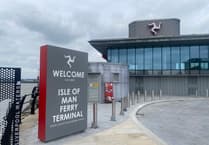There are not enough resources to launch a food hygiene rating scheme, the Environment, Food and Agriculture Minister has admitted.
Clare Barber previously indicated no such scheme would be put in place which was due to be launched next month.
But, during this month’s Tynwald sitting, she told members the scheme is not practical and would ultimately be unfair and damaging to businesses.
There is a shortage of qualified food hygiene inspectors across the British Isles and Mrs Barber explained that officers could not simply be redeployed from other parts of the department to take on the role which requires years of training.
Proposals to bring in a food hygiene rating scheme in 2021 was rejected with concerns raised over the negative impact on operators awaiting an inspection and the opportunity for those receiving a poor score to delay by appealing.
A revised scheme was due to be put forward by December this year but that is also being shelved for a watered down alternative.
There are 1,862 food businesses registered in the Isle of Man and Mrs Barber explained that each premises would need to be inspected before any rating scheme could be formally introduced to allow them time to make improvements.
But she said: ‘The pro-active inspections will be resource-intensive and, given all the other responsibilities of the team, they have been able to only allocate on average just one full-time equivalent to undertake these inspections.’
She also explained it would take two years of training before someone could achieve the basic qualification needed to become a food hygiene inspector.
She said: ‘Given the qualifications required to carry out food hygiene inspections it is not possible to simply redeploy staff, who do not have the appropriate training, from other areas to bolster the resources.
‘Resultantly, most food businesses have not had a pre-launch inspection and would therefore not have sufficient time to make any necessary improvements to their practices prior to the formal launch of the (hygiene rating) scheme.’

Mrs Barber explained that premises would have to be reinspected every 18 months or so for the scheme to remain credible.
She said: ‘A poorly rolled out scheme where the vast majority of businesses are awaiting inspection could be damaging for business at a time when the hospitality industry needs support.’
Mrs Barber said a robust inspection scheme would need an increase of five full-time food hygiene inspectors already adequately trained.
She explained: ‘Proactive inspections are only one tool to meet this objective. However, compared to other interventions it is resource-heavy, intensive and time consuming and difficult to prioritise.
‘Instead, we have decided to implement a combination of interventions that, together, we are confident will raise food standards across establishments in the Isle of Man. This is in the form of a food safety assurance programme.’
She went on to say this would consist of an education programme for operators outlining their responsibilities in respect to food hygiene with regular workshops on completing necessary documents.
A quarterly bulletin will also be issued to all businesses to promote best practice and their legal responsibilities.
Mrs Barber said the team would continue to react to concerns over poor practice by carrying out inspections swiftly.
But she conceded that only high-risk premises, such as hospitals and schools, had been regularly inspected and the remaining food businesses had not been adequately inspected.
She said: ‘As a pilot exercise, the team intend to undertake a remote inspection of 60 such premises.
‘A questionnaire will be sent to a random selection of such businesses asking the operator to answer a series of questions on the nature of their business, the structure of their premise, the customers they serve and the food practices they follow.’
She said those that fail to respond will be prioritised along with higher risk businesses for inspection within four weeks. Other businesses will also be spot-checked. If successful, the scheme will be rolled out more broadly. But there are no plans to publish any inspection outcomes.
She said: ‘I hope members appreciate the resources and budget requirements to prepare for and deliver a credible food hygiene rating scheme was significantly underestimated and is simply not available in the format envisaged.
‘But we are exploring how best to increase the number of qualified environmental health officers within our team.
‘A poorly resourced scheme could be unfair and damaging for businesses and it would be irresponsible to progress with such a scheme in light of what we now know.’
She said the approach the department intends to take is the best way forward with the resources available.
If a ratings scheme had been introduced, such regulations would bring the Island in line with the UK and mean the likes of pubs, restaurants, cafes, and supermarkets would be legally required to display their rating for the public to see in the premises and online.
The rating system would range from zero, where urgent improvement is needed, to five, where hygiene standards are classed as very good.
.jpeg?trim=0,0,0,0&width=752&height=501&crop=752:501)


.jpeg?width=209&height=140&crop=209:145,smart&quality=75)
